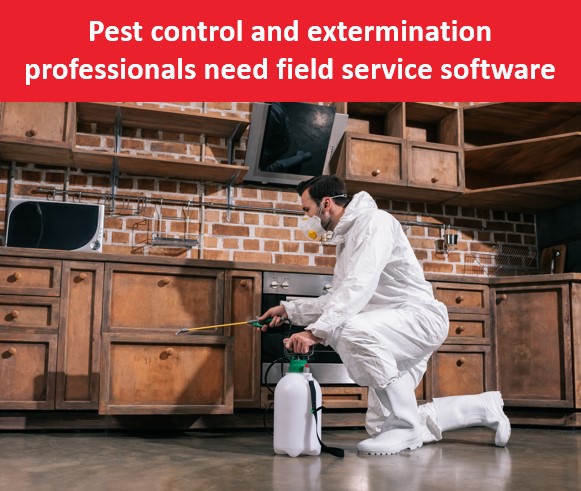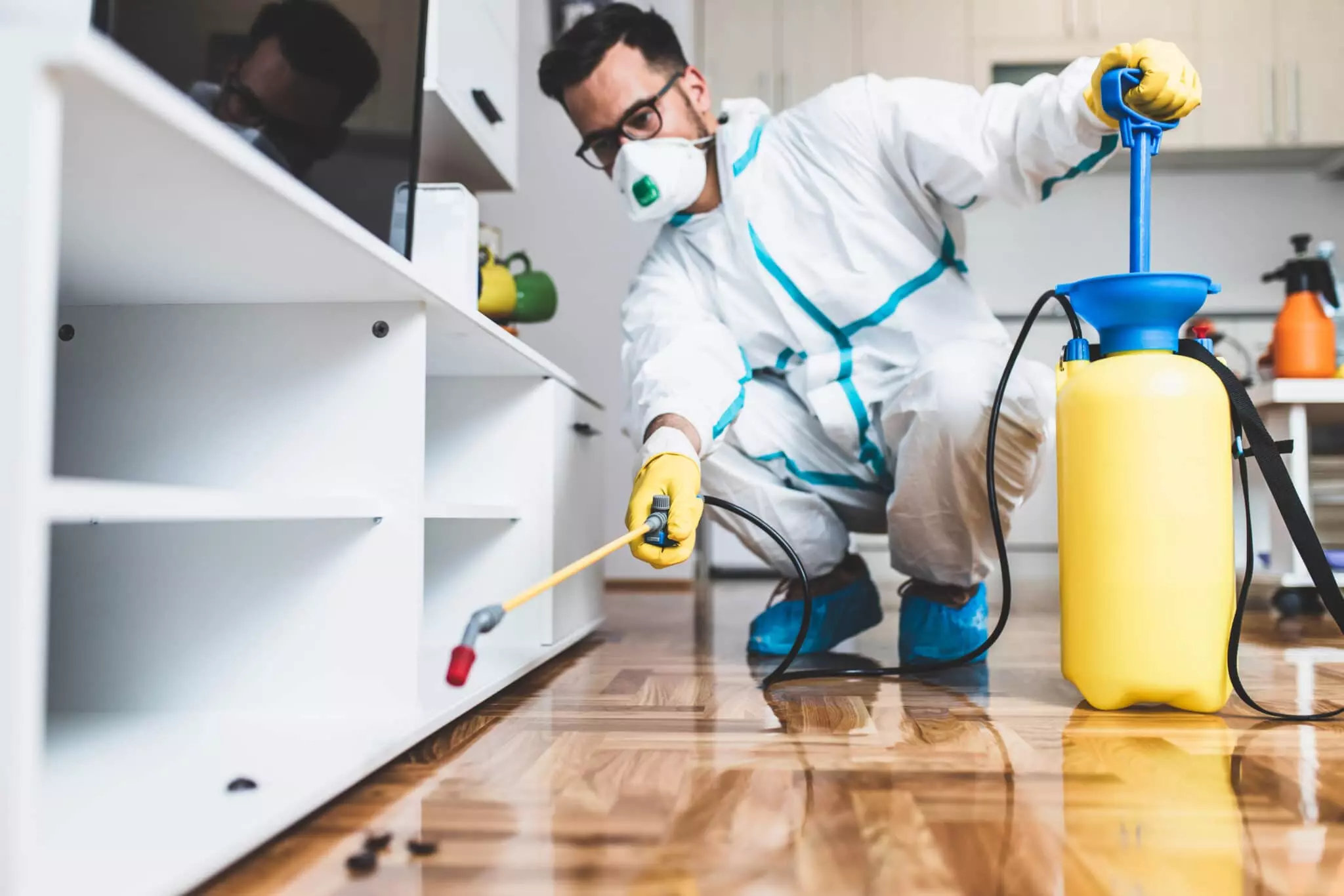Safe and Dependable Insect Control for Lasting Security
Reliable pest monitoring requires a multifaceted approach that stabilizes ecological integrity with the requirement for reliable pest suppression. The nuances of these approaches may not be promptly clear, motivating a closer examination of the techniques that can lead to lasting bug control end results.
Recognizing Pest Control Methods
Pest control incorporates a range of techniques focused on handling and removing unwanted insects and rodents that can threaten both health and wellness and building. Comprehending these techniques is essential for reliable bug management.
The main groups of bug control techniques consist of mechanical, biological, and chemical techniques. Mechanical methods entail physical obstacles and catches to avoid parasite access and capture undesirable varieties. For instance, utilizing screens on home windows or utilizing sticky traps can considerably decrease pest populations without presenting harmful substances.

Chemical pest control is usually one of the most recognized method, using chemicals to eliminate insects. These chemicals can be reliable however should be used with caution to stay clear of negative effects on non-target types and the atmosphere.
Benefits of Eco-Friendly Solutions
Exactly how can environmentally friendly remedies transform bug control practices? The fostering of environment-friendly parasite control approaches uses numerous advantages, significantly improving the efficiency and safety of insect administration (exterminator coquitlam). First of all, these options use natural ingredients, reducing the dependence on hazardous chemicals that can pose dangers to human wellness and the atmosphere. This shift not only shields family members and pet dogs however additionally lessens the capacity for dirt and water contamination.

Another advantage is the favorable effect on regional biodiversity. Eco-friendly remedies are developed to target certain pests while preserving valuable insects and wildlife, promoting a balanced ecosystem. This approach lines up with the growing consumer demand for lasting practices, boosting the reputation of parasite control providers.
Integrated Pest Administration Strategies
The execution of eco-friendly solutions normally causes the adoption of Integrated Pest Monitoring (IPM) techniques, which better enhance parasite control efficacy. IPM is an all natural approach that integrates numerous techniques to take care of insect populaces while minimizing environmental influence. This technique highlights using organic, social, mechanical, and chemical controls, guaranteeing a well balanced and lasting method of bug monitoring.
One fundamental facet of IPM is the detailed assessment of parasite activity and ecological problems. By keeping track of insect populations and identifying their life process, practitioners can apply targeted interventions that disrupt the insect's habitat or lifecycle, minimizing reliance on chemical pesticides. In addition, social practices such as crop rotation and habitat control can dramatically diminish insect establishment and reproduction.
Another essential part is using biological control agents, such as advantageous insects or microorganisms, which can naturally suppress pest populations. When chemical applications are essential, IPM focuses on the usage of low-risk chemicals and applies them selectively, minimizing direct exposure to non-target organisms and human beings.
Incorporating IPM approaches not just boosts parasite control performance yet likewise promotes a much safer ecological community, lining up with the growing demand for sustainable practices in parasite monitoring.
Safe Practices for House Owners
Comprehending the significance of safe practices in pest control can encourage house owners to properly handle insect issues while guarding their health and wellness and the atmosphere. Executing preventative procedures and non-toxic approaches is vital in reducing direct exposure to dangerous chemicals.
Home owners need to first examine their environment for conditions that bring in pests, such as standing clutter, food, and water rat control coquitlam waste. Frequently cleansing and sealing entrance factors can deter bugs from attacking the home. Utilizing all-natural deterrents, such as crucial oils or diatomaceous earth, can supply reliable alternatives to chemical pesticides.
When chemical treatments are needed, home owners should choose products that are specifically identified as secure for residential use. It is necessary to adhere to application standards meticulously to avoid overexposure. Utilizing targeted therapies in locations where bugs are determined, instead than blanket spraying, can considerably minimize chemical use.
Finally, preserving open communication with insect control experts is important. House owners must ask regarding the security of products used and demand eco-friendly options coquitlam exterminator whenever feasible. By taking on these secure methods, house owners can produce a healthier living environment while properly taking care of bug problems.

Tips for Long-Term Defense
Establishing a pest monitoring method that emphasizes lasting security can significantly enhance the performance of the risk-free methods previously reviewed. To attain this, house owners must execute regular examinations of their building, concentrating on concealed areas such as attic rooms, basements, and crawl spaces. Early detection of pest task is essential in protecting against invasions from holding.
These practices decrease attractants that draw parasites into the home. Securing entry factors, such as splits around windows and doors, can successfully obstruct potential pest gain access to.
Landscape design ought to also be thought about; keeping plants cut and maintaining a range between greenery and the home decreases concealing places for insects. Making use of natural deterrents, such as crucial oils or diatomaceous earth, can additionally inhibit invasions without turning to extreme chemicals.
Finally, teaming up with a specialist pest control service for routine rat control coquitlam evaluations can offer an additional layer of security. These experts can offer customized recommendations and advanced treatments, guaranteeing that your home stays shielded versus pests in the long-term.
Final Thought
In final thought, safe and trusted parasite control calls for a diverse technique that highlights environmentally friendly methods and incorporated pest monitoring. By applying all-natural deterrents, conducting regular inspections, and keeping appropriate sanitation, residential or commercial property owners can considerably lower bug populations while protecting beneficial pests and the setting. Partnership with professional bug control services boosts the efficiency of these techniques, ensuring customized services that provide long-term protection and satisfaction against future problems.
Effective bug management needs a multifaceted strategy that stabilizes environmental integrity with the need for efficient parasite reductions. The fostering of environment-friendly bug control techniques uses numerous advantages, dramatically improving the effectiveness and safety of bug management.The application of eco-friendly solutions naturally leads to the fostering of Integrated Pest Management (IPM) methods, which additionally enhance insect control efficiency. exterminator coquitlam. By monitoring bug populaces and identifying their life cycles, experts can implement targeted treatments that interfere with the pest's habitat or lifecycle, minimizing reliance on chemical pesticides.In final thought, safe and reputable bug control requires a diverse approach that highlights eco-friendly techniques and incorporated insect management